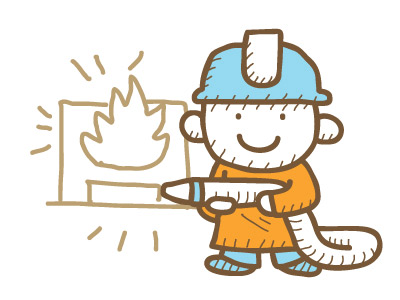As a parent you have a key role to play in supporting your children with their career journey. Your kids will look to you for advice and guidance. Therefore, it’s important that you have as much of the career development information at hand. Find out what your roles are and how you can help your child discover the endless career possibilities the world has to offer.
What is a Career?
“Career” is the progress and actions taken by a person throughout their lifetime, especially those related to that person’s occupations. A career is often composed of the jobs held, titles earned and work accomplished over a long period of time.
Traditionally this meant employees staying with one job during their whole career. Today however, there is an increasing trend for employees to change jobs more frequently but still within a particular field (i.e. a lawyer could work for several different firms and in several different areas of law over a lifetime), or in an altogether different field.
Discovering The World
As parents, we need to consciously expose our children to career possibilities that lie in and out of our own experience. Some things you can do are:
- Encourage your child to have proactive discussions with family members who have different career backgrounds. It’s an opportunity for them to ask questions about a certain career choice and how to achieve it. Start with your own career first!
- Taking family field trips to workplaces, and other businesses can give children an idea of what a job looks like. For young adults and teenagers, job fairs are a good place to go to gather more information about a particular career or learning about a new one.
- Joining career clubs at their school or non-governmental organizations can help connect children to career-focused field trips, guest speakers, and volunteer activities that build job skills.
- Role-play activities can help spur your child’s interest. You can do this at home with the family using props – it’s also a great way to spend some quality time together. Similarly, you can go to certain family entertainment centres which provide career edutainment activities that are both engaging and interactive.

Your Attitude Matters
Parents also influence the knowledge children have about work and different occupations; the beliefs and attitudes they have to working; and the motivation they have to succeed. Most of this is learned unconsciously – children and teenagers absorb their parent’s attitudes and expectations of them as they grow up.
Therefore you should:
- set realistic expectations based on a child’s strengths. This is key to building the kind of confidence that is essential to long-term success.
- set a good example (i.e. good work ethics, exemplary behaviour).
- provide sufficient opportunities for your children to learn and develop their interests by noticing their personality and strength.
- have a trusting, affectionate and supportive parent-child relationship.
- keep the lines of communication open.
Avoid:
- over-involvement and making all their decisions for them.
- downplaying their choices or be condescending about them.
- over-thinking things, it causes stress and tension.
- forcing them into careers/choices they don’t like.
Having a positive attitude towards the choices your child makes and understanding that choosing a career is a journey (unpredictable and constantly evolving) are some of the ways in which you can support your child to prepare for their future and make them more adaptable to change.
Career Profiling
To help you have an idea of what your child’s career may be, have them take a career profiling/ aptitude/ personality/ assessment test, you can do this online. The test is scientifically-based and is backed by comprehensive studies; it includes a series of questions that are designed to assess your child’s interests, values, and preferences.
It provides an interesting look at your child’s personality and details information about what motivates and interests them. In addition, it will provide suggestions of particular careers that are best-suited for your child. From there, parents can help “groom” their child to become whatever it is they aspire to be.
Enhance Their Skills
Young people need the skills (job as well as life skills), knowledge and capabilities to navigate through these various experiences. They will also need to use resilience in order to move forward when their preferred career option does not follow a direct pathway. The important thing is that you help them develop the skills they need so that it aligns with a particular career.
Different experiences throughout life; involvement in new and challenging activities (formal and informal education); as well as engaging with a network of new people every now and then, help your child develop these skills.
Generally, skills include but are not limited to:
- Human-relationship
- Communication
- Conflict resolution
- Language
- Decision-making
- Problem-solving
- Emotional Quotient
- Behavioural
- Computer literacy
- Information management
- Leadership
- Money management
- Vocational
Your child’s interest may change as they grow up and you should always be there to encourage them to pursue that path. If their initial interest changes don’t be disappointed, nourish that enthusiasm too.
Parents should avoid reacting negatively towards career choices of their children; it may shut down the whole exploration process. The “road less travelled” can be as fulfilling and promising as any other normal career options. Therefore, parents need to be supportive and encourage their child to gather as much information as possible on their career interests.
Lastly, a parent must recognize that their role is to act as a facilitator in their child’s career journey and allow independent career choices to be made. A career is something which is unique to every one of us and everybody should be supported to follow their interests. What is important is for you to help them be aware of as many satisfying career choices as possible.
An educational collaboration with National Population and Family Development Board Malaysia.







Comments